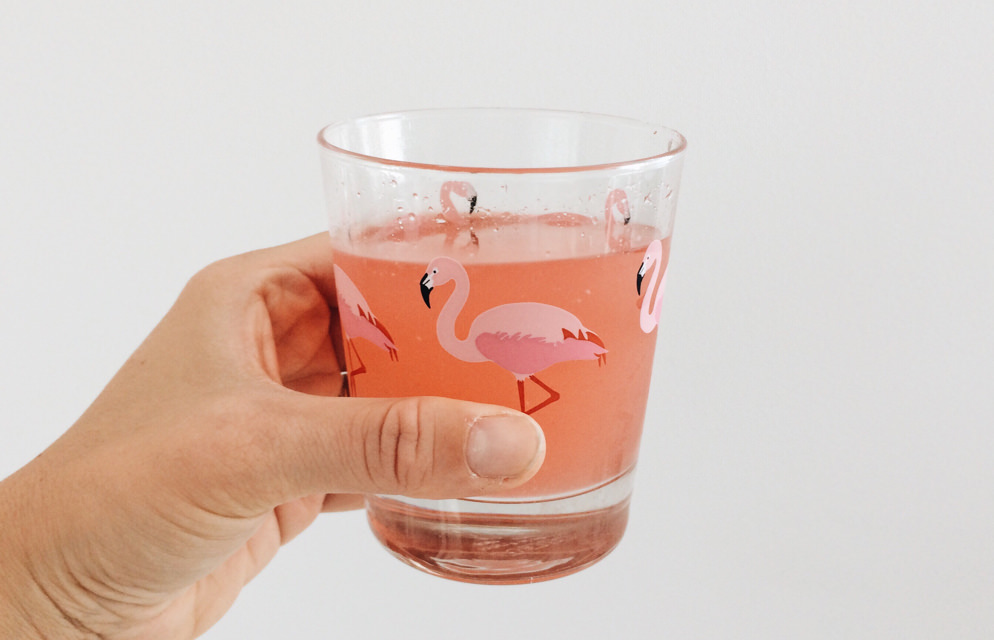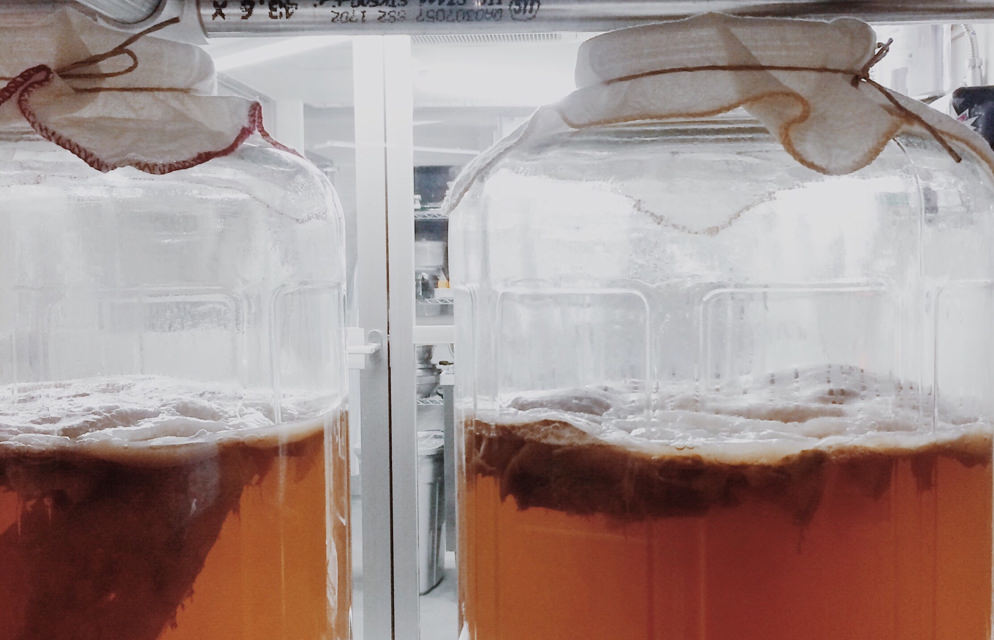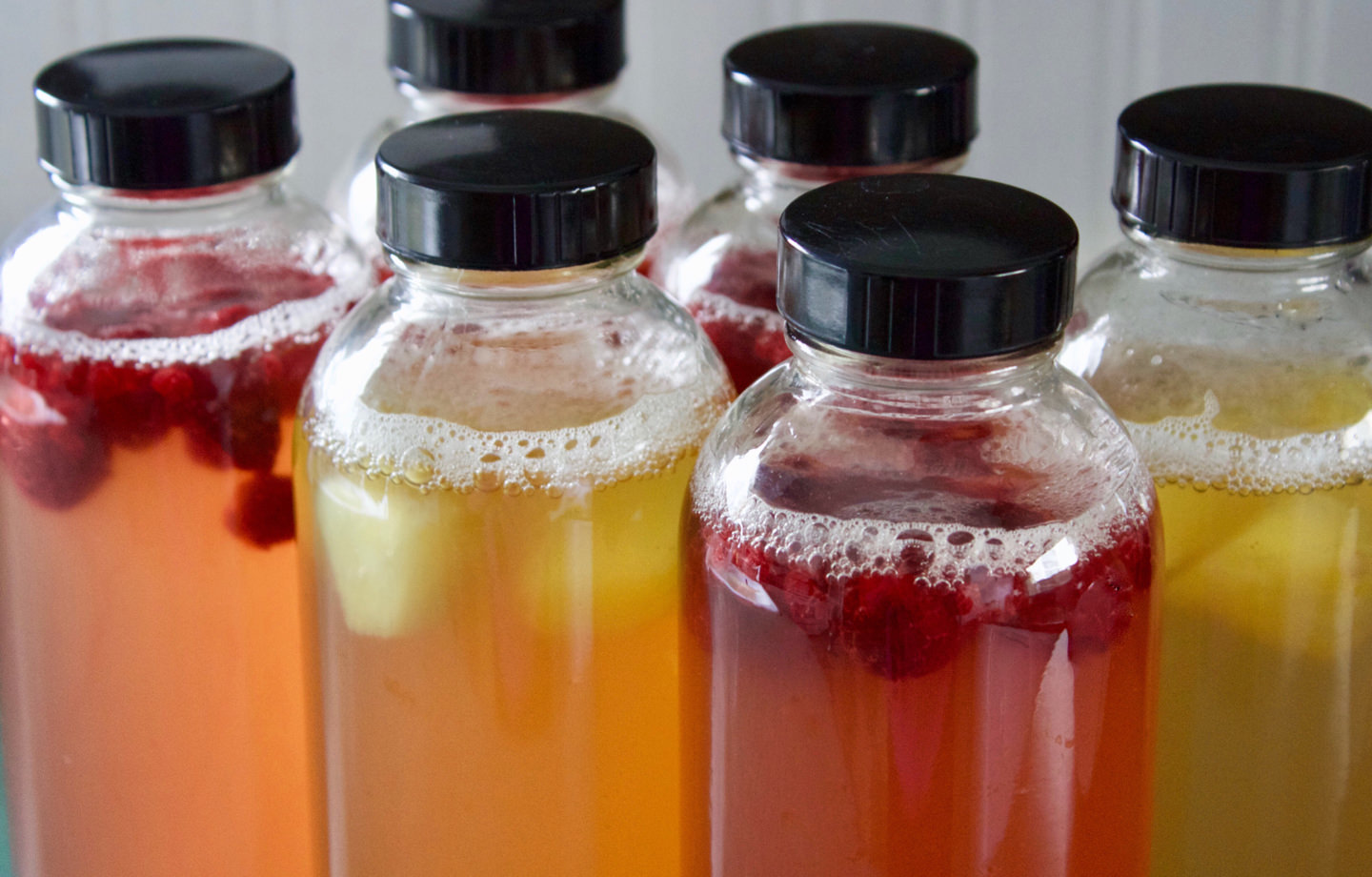I remember the first time I tried Kombucha. I really wanted a Pepsi, and I was feeling pretty bad about that. I saw the light pink bubbles at the top of a bottle of cranberry-flavored Kombucha and shrugged — here goes nothin’.
What met my lips was a pleasantly fizzy drink on a hot summer day that didn’t give me a migraine, was just sweet enough to scratch the itch of a soft drink craving and gave me a strange sensation akin to having my first sip of a beer.
What the what? I had to double check to make sure I hadn’t picked up something alcoholic by mistake.
Turns out, a very small amount of alcohol is naturally created during the fermentation process of kombucha, which explains that pleasant feeling I got after polishing a bottle off in about three minutes. At around 1% though, it wasn’t enough to sweat, and I was loving this newfound, better-for-me alternative to Pepsi.

What Is Kombucha?
So what the heck is Kombucha, anyway? Kombucha is basically a fermented tea — a combination of time, tea, sugar, and living bacteria (commonly known as a SCOBY) that produces a lightly effervescent beverage with just the tiniest bit of naturally occurring alcohol in it.
During the fermentation process, the bacteria feed on the sugar, eliminating most of it (depending on how much is added). The result is a slightly sweet, bubbly beverage that has an almost vinegary flavor to it (that for some reason, is not at all unpleasant).

Possible Health Benefits
A lot of my health nut friends had been brewing their own kombucha in big jars in their kitchen for ages, so I did a little digging. Were there really any health benefits to this thing, or was it just another $4 a bottle health food fad?
The short answer? It’s hard to say. Kombucha is still being studied, so the majority of the information out there is largely anecdotal. It’s not that it’s unfounded, it’s that there just isn’t enough research out there to confirm or deny the benefits.
That being said, advocates of this fizzy health drink claim that it has antioxidant benefits, thanks to the light combination of tea and beneficial bacteria. With so many autoimmune diseases being directly linked to leaky guts, the logic at least holds up — kombucha may very well help to heal your gut and reduce inflammation.

How to Make Kombucha
To get started brewing your own kombucha (because holy WOW does it get expensive to buy), you’ll need to get your hands on a starter or SCOBY. Ask around locally — you’d be surprised who has one of these slimy gems on hand for you to get your own batch going with!
Making kombucha is pretty similar in fact to making sourdough — you start with a bacterial culture and keep it fed and active to keep making batch after batch of the yummy stuff.
A recipe from Cultures for Health goes over home kombucha brewing in detail, but the gist of it is this:
- Dissolve your sugar in some hot water
- Get your tea steeping in the hot water
- Cool your tea
- Add a starter tea, or distilled white vinegar
- Add your SCOBY
- Cover the jar and let it sit for at least a week
The longer your concoction sits, the less sweet it will be, so use your own preferences as a judge for when your batch of kombucha is complete. As you pour kombucha from your jar, always keep some liquid in the bottom as a starter for your next batch (you won’t need the vinegar then).
After your kombucha base has been brewed, it’s time to get creative! Add fruit juices and extracts, spices, whatever tickles your fancy to make it your own!
Have you ever tried to make kombucha? How’d it go? Share pics of your favorite brews on Facebook or Instagram with us, and tag us in the post! @AvocadoMattress or #AvocadoGreenMagazine

Shop Pillows
The Essential Organic Pillow Collection
Gentle, breathable, non-toxic support.






